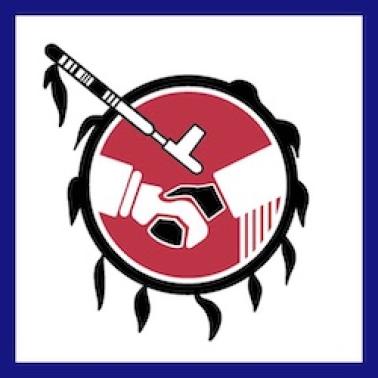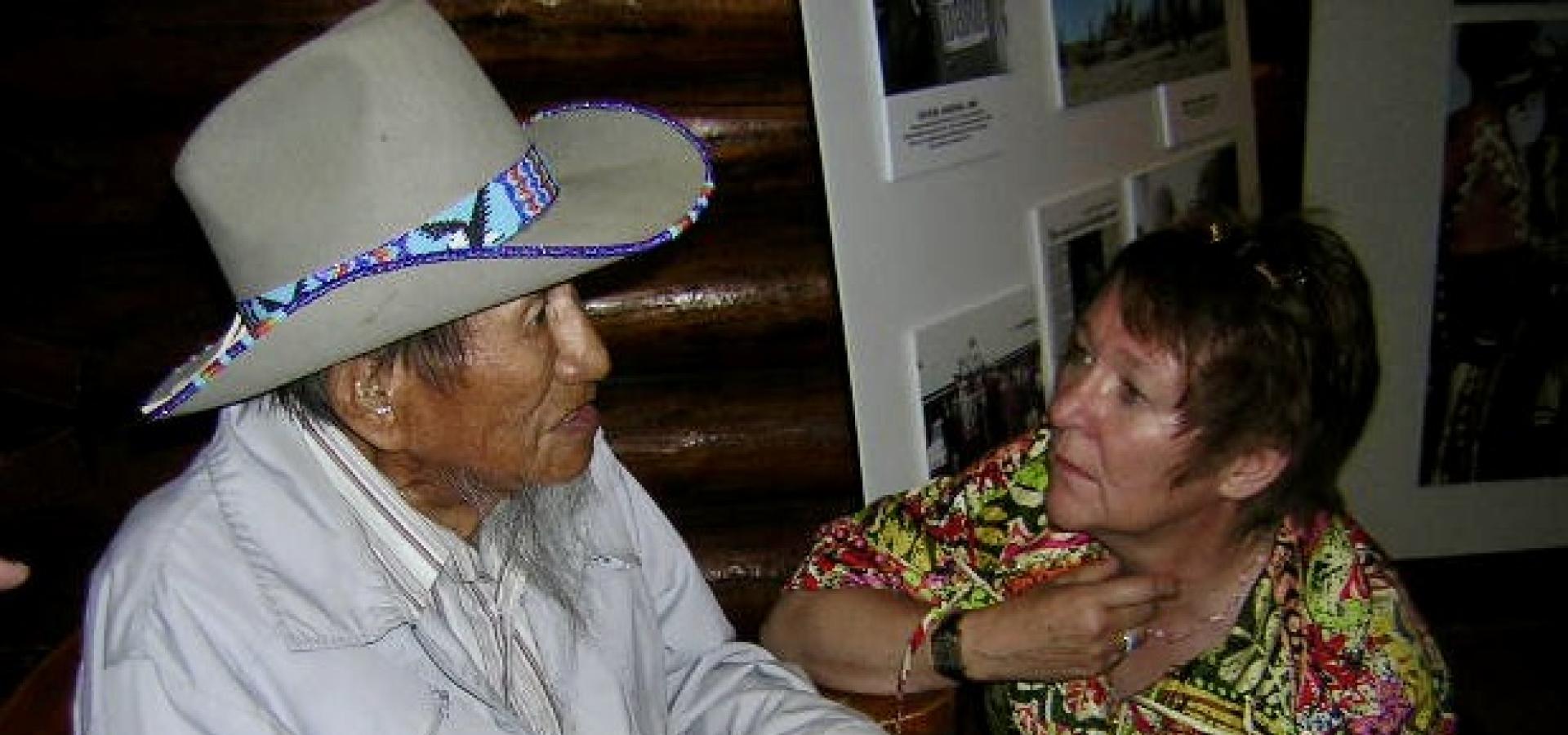
The Stoney Nakoda Nation symbol of a handshake in the presence of medicine pipe and feathered circle speaks to integrity-based relationships among dwellers on Mother Earth.
The spirit of intercommunity goodwill so evident at the Sept. 30 Stoney Nakoda Nations Truth and Reconciliation Day powwow at Cochrane’s SLS Centre prompts me to recall a story on handshakes and reconciliation.
Let me begin by reflecting on the life and legacy of the late Bill McLean, councillor and chief of the Bearspaw Band of the Stoney Nakoda Nation from 1958 to 1980. Son of globetrotting Chief Walking Buffalo, Bill, too, travelled the world with a message of reconciliation and healing among peoples and nations as part of his participation in MRA (Moral Re-Armament, now known as Initiatives of Change, IofC).
MRA/IofC is a global movement committed to reconciliation across ethnic, political and similar divisions. The foundation for such reconciliation has been the prayerful listening to the still, small voice of God within, with a commitment to acting responsibly according to the moral absolutes of honesty, purity of heart, unselfishness and love. Bill’s vision for the leaders of his own community was that they become examples of positive change, instead of wallowing in self-pity, bitterness and hate.
Bill’s personal story was a classic example of such change. When he was six years old, he had a very bitter experience in Grade 1 at the Morley residential school. His anger over this festered for years. "I was full of bitterness and hatred at that time,” Bill explained, “especially toward the White people after all they'd done to us.”
This was his frame of mind when, in 1959, he accompanied Walking Buffalo to an MRA conference on Mackinac Island, Michigan. They were there to participate in the filming of The Crowning Experience, a musical on reconciliation inspired by the life of American pioneer Black educator Mary McLeod Bethune, who herself had fought the bitterness of racism for much of her life.
While at the conference, Bill shared a room with a White guy, our coffee companion Jack Freebury. Jack had not met Bill before and was unaware of his feelings. Nevertheless, he became a lightning rod for Bill's pent-up resentments.
At the conference, Bill said, he met others who also had much to be bitter about. But there was a difference: these people spoke about forgiveness and reconciliation. He pondered over their words, and especially over something Mary McLeod Bethune once said about the healing impact of forgiveness on her own life:
"My eyes were opened and I have seen the nations standing together regardless of race, class or colour,” she’d said. “To be a part of this great uniting force of our age is the crowning experience of my life."
"I thought of my roommate," Bill said. "I thought I'd better apologize to him for hating him." In the midst of the heady busy-ness of filmmaking, Bill sat down with Jack. “We both apologized to each other and forgave each other. For the first time in my life, I knew who I was."
That was the beginning of Bill and Jack’s beautiful lifelong friendship, Jack told me. Bill’s “honest sharing about his feelings, and why he had them, helped me to understand what many First Nations people feel toward White people."
To get reconciliation under way, Bill said, he had to be honest with himself and start there.
And that’s how I see the Stoney Nakoda symbol of an interracial handshake in the presence of medicine pipe and feathered circle. It is a prayer for that very thing at this time of Truth and Reconciliation. We all have to start with ourselves.
By Warren Harbeck 2022
